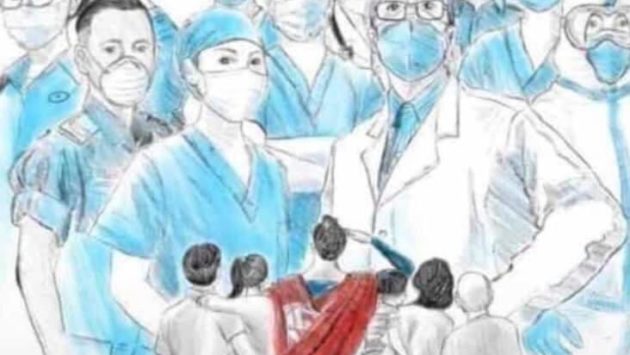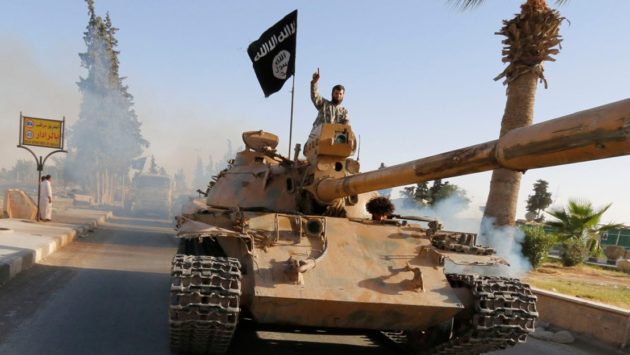Iraq … A Country in the Throes of Transformation and State Building
Oday Hatem
Nearly 12 years after the fall of Saddam Hussein’s regime, which was supposed to bring about a transition to democracy in Iraq, all the facts on the ground today indicate that the country is moving to become a theocratic state, totally dominated by the clergy. Iraq is becoming a unique case that resembles no other state or previous experience.
One cannot say that because some democratic practices have been followed, such as the vote on the constitution in 2005 or conducting parliamentary elections, that Iraq is a democratic nation. These practices create an illusion of democracy but the reality is quite different.
Iraqi citizens have no freedom of choice. They are under the influence of religious edicts; they fear doctrinal attacks for being Shiites or Sunnis, and ethnic attacks if they are Kurds or other ethnic minorities. The elections in Iraq turned into an occasion to deepen sectarian, racial, and ethnic divisions in the country – not an opportunity to express free will and choose government representatives on the basis of efficiency or campaign programs that address people’s needs. Citizens do not read about the candidates’ programs, or what services they propose to offer. Voters are influenced by two factors: responding to fatwas from the clergy, and fear.
In this way, the election lost all significance, because in the case of Iraq, elections did not rely on the most important democratic principle, which is that citizens must have free choice. The very foundation of democracy – which is that the people are the source of authority – has been replaced by the interest and the will of clergy. Iraq is closer to being a theocracy than a democracy. The difference between a democratic state and a religious state is that the first is subject to the will of the masses and initiates decisions and laws through an elected parliament that is under public scrutiny. The second, by comparison, proceeds in accordance with the opinions of one cleric or a group of clerics; these opinions are later given the appearance of being legal and constitutional by Parliamentary authorization.
After 2003, despite huge publicity about the establishment of the first democracy in an Arab country, Iraqis even lost some freedoms that they had under the dictatorship, such as choices about one’s clothing and way of life. The head cover is now imposed on girls in schools, government institutions, and even in the streets, in many places in southern, central and western Iraq.
Females are now separated from males in schools, and there is intense support from Shiite Islamist parties to institute this separation even in the universities. Additionally, many subjects such as music, painting and sports have been canceled or are neglected in schools. The focus on the study of religion within a sectarian framework, including acceptance of extremism and violence, has been increased.
Institutions, political parties and religious groups impose their control and agenda on the people in central and southern Iraq very publicly, for example, by preventing concerts and festivals in provinces with a Shiite majority. In the Sunni-dominated provinces, which during the last decade were outside the Iraqi government’s control and under the control of tribal and extremist organizations represented by Al-Qaeda, Daesh and other jihadist groups, people now experience a medieval way of life.
In Kurdistan, the case is no better than the rest of Iraq in terms of democracy, but it differs in that the Kurdistan region is moving towards totalitarian, Kurdish-nationalist dictatorship and repression.
Although the Iraqi constitution guarantees private and public freedoms, the constitution remains an undelivered promise, respected by neither the Parliamentary institutions nor the executive branch. They largely make their decisions by mutual consent and consensus in order to ensure the sharing of interests and financial resources among the parties in power, not according to what is consistent with the provisions of the Constitution.
The irregularities of the Parliament and the Iraqi government are too numerous to count. This is especially true in relation to issuing laws that restrict freedom of expression and the press, such as the so-called “journalists’ rights law,” which was released in 2011, despite its explicit violation of provisions of the Constitution (Article 38 / I-II). Article 38 states very clearly that the State must guarantee freedom of expression and freedom of the press in accordance with internationally recognized standards of political and civil rights:
The State shall guarantee in a way that does not violate public order and morality:
- Freedom of expression using all means.
- Freedom of press, printing, advertisement, media and publication.
- Freedom of assembly and peaceful demonstration, and this shall be regulated by law.
Also, the previous government’s approval of “Al-Jaafari personal status draft law”, sending it to parliament for approval, and the repeated attempts by parliament to pass the law reflect the very great danger of giving legal protection to the rape of minors and legitimizing sectarian rule. And, in a larger challenge to democracy, approval of the law would represent the final nail in the coffin of the state and the transformation of the people from citizens with equal rights into followers of the clergy. This draft law gives the clergy legal authority to exercise great control over the people; the project to pass the law reflects a strong intention to abandon the values of a modern civil state in favor of religious authority that imposes control on behalf of denominations and sects, according to the jurisprudence of opaque and ambiguous texts, subject to the mood and will of the clerics.
It seems that this is Iraq’s future: transformation into a land of sectarian and ethnic princedoms, not a democratic nation state.




